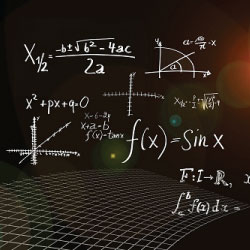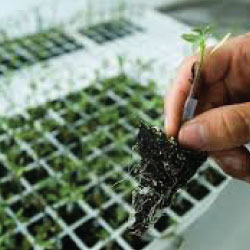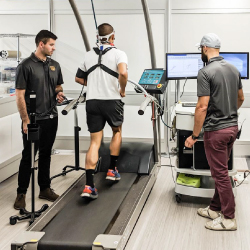Processing Request...
Processing Request...

Mathematics includes the study of such topics as quantity, structure, space and change. Mathematicians seek and use patterns to formulate new conjectures; they resolve the truth or falsity of conjectures by mathematical proof. When mathematical structures are good models of real phenomena, mathematical reasoning can be used to provide insight or predictions about nature. Through the use of abstraction and logic, mathematics developed from counting, calculation, measurement, and the systematic study of the shapes and motions of physical objects. Science is a systematic enterprise that builds and organizes knowledge in the form of testable explanations and predictions about the universe. Modern science is typically divided into three major branches that consist of the natural sciences (e.g., biology, chemistry, and physics), which study nature in the broadest sense; the social sciences (e.g., economics, psychology, and sociology), which study individuals and societies; and the formal sciences (e.g., logic, mathematics, and theoretical computer science), which study abstract concepts.
View Courses
Actuarial science is about calculating money-related risks through probability, statistics and business knowledge. It is often used in the fields of insurance and finance to manage risk and make solid business and budgetary decisions.
View Courses

Biology is the branch of science dealing with the study of life. It describes the characteristics, classification, and behaviors of organisms, how species come into existence, and the interactions they have with each other and with the environment.
View Courses

The profession of designing buildings, open areas, communities, and other artificial constructions and environments, usually with some regard to aesthetic effect. Architecture often includes design or selection of furnishings and decorations, supervision of construction work, and the examination, restoration, or remodeling of existing buildings.
View Courses

Physics is the study of the natural world. It deals with the fundamental particles of which the universe is made, and the interactions between those particles, the objects composed of them (nuclei, atoms, molecules, etc) and energy. Physics is the science of Nature - of matter and energy in space and time.
View Courses

Studying Agricultural Science in Malaysia is the art and science of managing biological systems for sustainable and ethical food source.
View Courses

The field of aquatic sciences is one which enhances the scientific understanding of the aquatic ecosystem using multi-disciplinary studies. The primary focus is to foster and sustain healthy aquatic environments, which allows us to maintain and manage its unlimited valuable resource besides developing solutions to a broad range of environmental issues.
View Courses

Urban landscape design is the act of taking a piece of land, no matter how big, and analyzing, evaluating and beautifying it. All the while, designers must focus on maintaining or increasing functionality and usability for humans and our animal counterparts in a cost effective manner.
View Courses

The study of the major concepts and theories required for an understanding of chemical phenomena. Principal topics include atomic and molecular structure, gas laws, stoichiometry, changes of state, chemical binding, solutions, and energetics in chemical reactions.
View Courses

Food science is the basic science and applied science of food; its scope starts at overlap with agricultural science and nutrition and leads through the scientific aspects of food safety and food processing, informing the development of food technology.
View Courses

Aviation, also known as air transport, describes activities and industries related to flight. Everything that has to do with flying or operating a plane has to do with aviation. The operation of an aircraft can be categorized as civil aviation and military aviation. Civil aviation includes all non-military passenger and cargo flights whether it is private or commercial. On the other hand, military aviation involves all military activities that have to do with aircraft.
View Courses

Environmental science is an interdisciplinary academic field that integrates physical, biological and information sciences (including ecology, biology, physics, chemistry, plant science, zoology, mineralogy, oceanography, limnology, soil science, geology and physical geography, and atmospheric science) to the study of the environment, and the solution of environmental problems.
View Courses

Sports Science (aka Sports Science & Medicine) is a discipline that studies how the healthy human body works during exercise, and how sport and physical activity promote health and performance from cellular to whole body perspectives. The study of sports science traditionally incorporates areas of physiology (exercise physiology), psychology (sport psychology), anatomy, biomechanics, biochemistry, and biokinetics. Sports scientists and performance consultants are growing in demand and employment numbers, with the ever-increasing focus within the sporting world on achieving the best results possible. Through the study of science and sport, researchers have developed a greater understanding on how the human body reacts to exercise, training, different environments and many other stimuli.
View Courses

Mathematics is the science that deals with the logic of shape, quantity and arrangement. Math is all around us, in everything we do.
View Courses


Take our free psychometry test to discover your passion and potential!
Try It Now!

Book a campus tour through us!
Book Now!

Submit your result to Edumetry, and a list of scholarship that is eligible for your result will be filtered out for you!
Match Now!